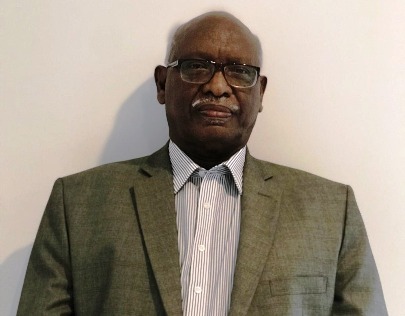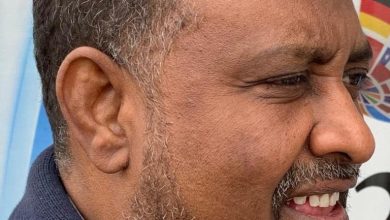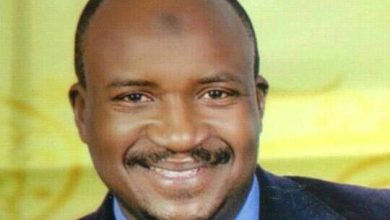Opinion
War, Politics, and the Changes They Have Brought

By: Zain Al-Abideen Saleh Abdul Rahman
A correct reading of the current reality and its changes, away from emotional inclinations and their interference in analysis, in addition to understanding the capacities of the forces influencing this reality and their role in managing the crisis, and assessing their tactical capabilities compared to those of other forces, leads to more accurate conclusions. Political forces, even their supporters, try to build their expectations based on the role of others in the political process, not on the slogans they raise, and they struggle to implement these slogans in reality. This is because effective forces with a political project, which they believe in and want to achieve, have slogans that are a product of the project they present and reflect the goal behind it. The mistake that political forces made after the fall of the Al-Ingaz regime was to raise slogans first and then try to build their political project upon them. This reveals a lack of understanding of the political process and a deficiency in political maturity.
Another issue is that any change in reality will affect the outcome of any project if it is not reviewed to adapt to new developments. Without falling into abstract theorizing, let us examine the experience of governance since the coup of the National Islamic Front on June 30, 1989. The opposition political forces formed the “National Democratic Alliance” to challenge the regime politically and militarily. The division that occurred within the regime—specifically within the Islamic movement—led to a significant split in its leadership and base (“the 1999 split”). This change within the regime had several consequences. The regime’s leaders sought alliances outside the Islamic movement to weaken the opposition, opening dialogues with the Unionist Party led by Zain Al-Abideen Al-Hindi, which became a partner in the regime, and with groups within the Umma Party like Musa Hilal and others. Additionally, they engaged with leaders from the Sudan People’s Liberation Movement, such as Riek Machar and Lam Akol, changing the political equation. Later, dialogues were opened with groups from the Sudan Liberation Movement and the Justice and Equality Movement, leading to internal splits, weakening these groups and causing internal strife. These actions changed the political equation, as did the inclusion of leaders like Mubarak Al-Fadil and Tijani Sisi, who were figures from the Umma Party. These developments weakened the opposition to the point that the “Naivasha Agreement” of 2005 was reached, and all forces participated in this regime shift. Such developments require new changes in political leadership.
After the revolution and the fall of the Al-Ingaz regime on April 11, 2019, new leaders emerged on the political scene, imposing themselves on the reality due to the changes in the political landscape. Even prominent figures like Ali Mahmoud Hassanein, Sadiq Al-Mahdi, and Sadiq Yousif found their voices falling on deaf ears among the new forces, representing a major shift in the political reality. The new leaders who emerged had relatively fresh political experiences, and crisis management required elements with broad experience to overcome the challenges. However, the experience showed that these new leaders did not correctly read the political scene, nor did they recognize the changes or understand the challenges facing the new system.
Any process of change will be met with resistance from conservative forces and those whose interests are tied to the old regime. It is crucial to understand the tools necessary for a successful transition, as well as the importance of maintaining popular support. None of this happened. Even the intellectuals and thinkers supporting the new regime followed slogans and emotions, failing to engage in constructive criticism, making them part of the new political crisis. Others distanced themselves because they found no receptive audience.
There was a significant gap between the new forces with limited experience and the opposition, which had gained extensive experience over thirty years of being in power. This gap is evident in how the conflict is managed and how tactical maneuvers are employed to align with a broader strategic vision. The absence of a clear vision presents the greatest obstacle in the political process, as it leads to merely reacting to events rather than shaping them. The one who creates events controls the political process, so when everyone shouts, “The Islamists and remnants are responsible for the failure and lack of progress,” it means that they are the ones controlling the political process and generating the ideas that others react to.
The war has taken place, impacting a large segment of the population, and this is a significant change with uncertain future implications. If political elites remain trapped in a single mindset, justifying their mistakes and still believing that events are driven by one side, they will fail to grasp the changes that will occur in the political arena in the future. The war will bring about major political changes and new leadership will emerge, supported by large segments of society, especially the youth who are fighting and sacrificing their lives for the nation. These young people, who give their lives selflessly, will not be lenient in the political process in the future. This reality is also shaped by the level of awareness that these youths gain from carrying arms, and it is well-known in leftist political thought that the use of arms is seen as one of the highest forms of political consciousness. War, by necessity, brings about major changes and has its own conditions, as it is not just about defeating the other side, but ensuring that no future actions can lead to another war, a matter that requires great awareness. May God grant us clear insight.



